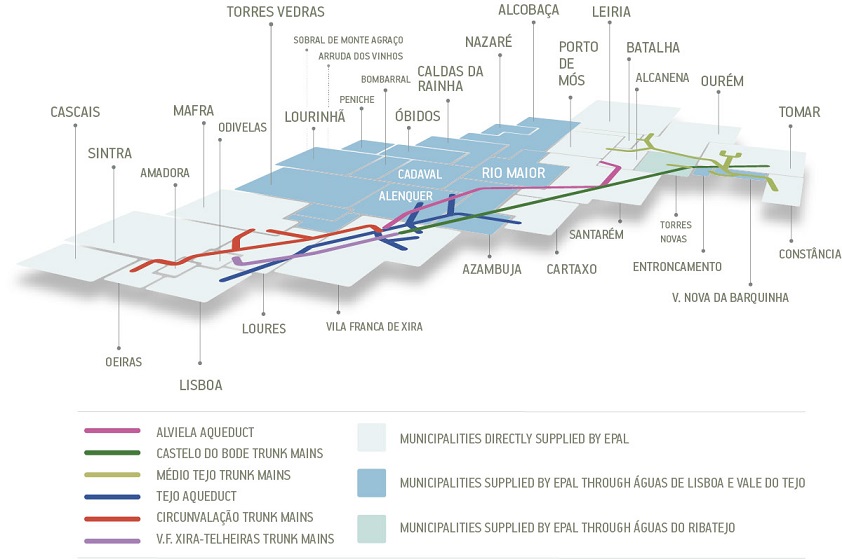EPAL’s supply system includes both the production and transport system and the distribution system.
The first one is responsible for water collection, treatment and transport to the company’s customers and it has 2 surface collection points, 23 underground collection points and about 700 Km of conveyor pipes, 2 treatment stations and 31 pumping stations.
The distribution system is responsible for managing and operating the general distribution network, with over 1,400 Km, and it further includes 14 reservoirs, 10 pumping stations and over 86 thousand branch lines connecting it to buildings, thereby providing the supply to homes in an area of 83 Km², which represents a population more than 500 thousand inhabitants.
The transport and distribution lines are more than 2,100 Km long.
EPAL currently manages and operates a supply system that is made up of three sub-systems: Castelo do Bode reservoir, opened in 1987 and extended in 2007 to a production capacity of around 625,000 m³ daily; the Tejo, opened in 1940 and extended in 1963 and 1976, with a daily production capacity of 400,000 m³; and Alviela,, which has been operating since 1880.
Of the three above-mentioned sub-systems, the largest and most relevant one is Castelo do Bode, as it accounts for about 75% of the company’s production capacity. It has a water collection tower located in the Castelo do Bode reservoir, the Pumping Stations I and II downstream from the dam with the same name and the Asseiceira Water Treatment Station and the Pipe that connects the Water Treatment Station with the Vila Franca de Xira Pumping Station.
With regard to the water production, transport and distribution operations, the system is managed through a tele-management system (remote system), one that is highly automated and centralises operation and control in real time of more than 170 facilities ranging from pumping stations to treatment stations, from reservoirs to valves.
